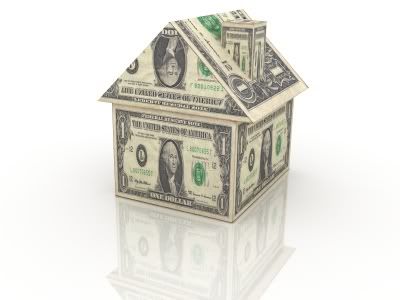How to Retire if Your House Is Not Paid For
![]()

I recently started to do some financial video lessons for www.ehow.com. Everyday, I realize how poorly we are all educated about handling our money. To think that two-thirds of our economy is built on consumer spending yet we don’t teach anything about personal finance in school or about the value of saving. Come to think of it, maybe this is why we are not taught how to handle are money…
I hope to do my little part in broadening financial education through these financial education videos. Don’t worry, they are short and to the point- plus, I’m sure they will get better the more I do. A transcript of the video follows or you can watch the video here.
More and more people are are retiring with mortgages on their homes. So don’t feel bad if you still have mortgage. Don’t feel like you’re being the curve. It’s not necessarily a bad thing but the most important thing to think about is whether can you afford to have that mortgage when you retire. You have to make sure you can budget properly with the mortgage in mind is that’s going to be a fixed cost until the end of the term. So one possibility would be to pay off your mortgage with the savings that you have which is sometimes thrown out there as an option for people who have a mortgage going into retirement.
I do not recommend this. I think it’s more important that you have your savings available to you then you can use that money in other ways and keep your mortgage. I would instead like to propose a couple other options on what you might be able to do if your mortgage might be a little too much and does not fit into your budget of what you need for retirement. I mean the first option I recommend would be to move out of your house to smaller house. That way you are going to save that expense. I know the family home is important and it has a great sentimental value but if you can you would really benefit yourself greatly if you move to a smaller house, cut down on the mortgage payment or hopefully have no mortgage at all with this move to the smaller house.
Second, what you could think about is a 30 year mortgage, entering into a new one. Interest rates are at historic lows. You could capitalize on that. It puts the payment down at a lower rate and then there might be some left over when you die but it most likely won’t be a huge amount and it will benefit you with a lower payment throughout your retirement.
Third, perhaps you can work it out with your children so that they can pick up a percentage of your mortgage. You could deed the house to them, enter into a new mortgage with them or outright sell the house. There are various strategies you could pursue along that line that could keep the house within the family and I recommend inter-family transfers as a way to get around reverse mortgages which I do not recommend. The fees and expenses in a reverse mortgage eat up the equity in your house so quickly that do not consider reverse mortgages as an option. I’m Ted Connolly and that’s how to retire with a mortgage that’s not paid for.

![]()

 Updated daily, this blog will keep you informed on the latest bankruptcy news!
Updated daily, this blog will keep you informed on the latest bankruptcy news!  Learn more about how Bankruptcy works and what you need to know.
Learn more about how Bankruptcy works and what you need to know.